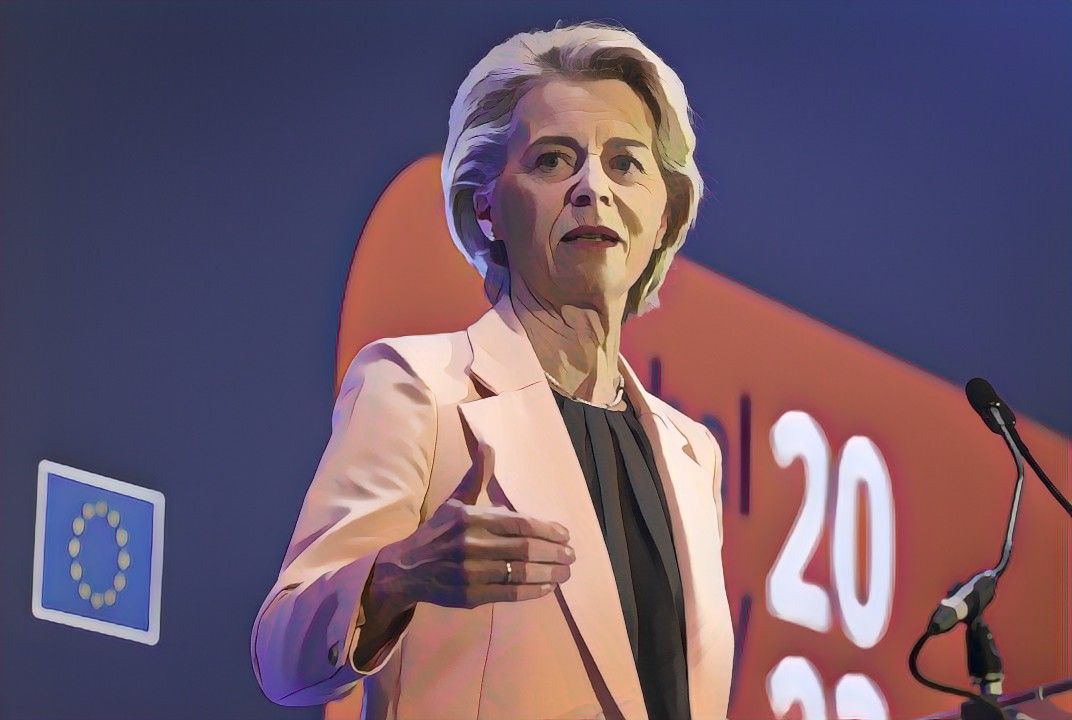EU Hosts Global Gateway Forum to Counter China Belt and Road Initiative

The Lede: On Wednesday and Thursday, the EU hosted leaders from mostly Global South countries in Brussels for the first Global Gateway Forum in a bid to counter China’s Belt and Road Initiative (BRI) as the rivalry over global influence intensifies between Beijing and the West.
What We Know:
- The EU’s Global Gateway had already had 66 billion euros ($69.6 billion) in deals at the opening of the summit. The bloc signed an additional 3 billion euros ($3.2 billion) worth of new agreements with countries across Europe, Asia, and Africa during the gathering for projects related to critical raw minerals, green energy, and transport corridors.
- Deals signed at the summit include agreements on critical raw materials with the Democratic Republic of Congo and Zambia; cooperation on clean energy with Bangladesh, Cape Verde, Namibia, the Philippines, Tanzania, and Vietnam; a 12-million-euro ($12.6 million) grant provided to Moldova to build new rail lines; an agreement to support Turkmenistan’s entry into the World Trade Organization (WTO), a 30-million-euro ($31.6 million) investment to advance vocational education and training in Tajikistan; and smaller deals with Armenia to invest 10 million euros ($10.5 million) in education and with Georgia for a 16-million-euro ($16.8 million) grant to improve safety along the country’s East-West highways.
- EU diplomats voiced support for the Global Gateway but had doubts about conflicting attitudes among member governments and EU agencies on the best approach for these partnerships and if Brussels’ offers can entice countries away from China. This summit in Brussels comes a week after China hosted representatives from more than 130 countries to celebrate the 10th anniversary of the BRI.
The Background: The Global Gateway was launched in late 2021 and is promoted by EU Commission president Ursula von der Leyen. A total of 300 billion euros ($316 billion) have been set aside to support the EU’s investment and development cooperation projects across the Global South. The program aims to prioritize projects focused on renewable energy, digital transitions, and sustainability. Officials have avoided publicly framing Global Gateway as an alternative to the BRI, but have highlighted transparency and environmental sustainability, which have been criticisms of the Chinese initiative.
Likely Outcomes:
- The EU has built in a sizable target to spend on this new wave of infrastructure projects. Ideally, most of these projects will bear productive fruit in the future. The EU will likely base additional spending and partnerships on the success of the deals signed at this week’s summit. There may be varying degrees of success across different regions as these projects are implemented, which may affect future decisions on directions of the Global Gateway.
- There may be some overlap and cross-pollination between the Global Gateway and the U.S. version, the Partnership for Global Infrastructure and Investment (PGII). A synergistic approach for Global South projects and spending may give both initiatives some advantage. However, it may still be a substantial hurdle for the West to be accepted as an alternative to China’s BRI offerings, especially as Beijing is jockeying to be a leader in precisely this kind of partnership with Global South countries in the future as an alternative to the traditionally Western-led lending systems.
Quotables:
“Global Gateway is about giving countries a choice, and a better choice. No country should be faced with a situation in which the only option to finance its essential infrastructure is to sell its future.” – Ursula von der Leyen, president of the European Commission
“For the moment, Global Gateway is only a slogan,” she said. “[It’s] a brand that wraps up very well the EU’s narrative for [development] – unfortunately, it doesn’t yet have substance.” – Andreea Brinza, co-founder of the Romanian Institute for the Study of the Asia-Pacific
“It’s essential for countries to have the possibility to make a choice on what's best for them. If there are only Chinese offers on the market, it means there is no choice. This must change.” – Romana Vlahutin, distinguished fellow at the German Marshall Fund
Good Reads:
EU Unveils New Deals In Plan To Challenge China's Belt And Road (RFE)
EU strikes clean energy deals in global forum to counter China’s investment plan (Euronews)
Global Gateway: If not now, when? (Politico)
EU Commission looks to future with the launch of its Global Gateway forum (Euravtiv)
